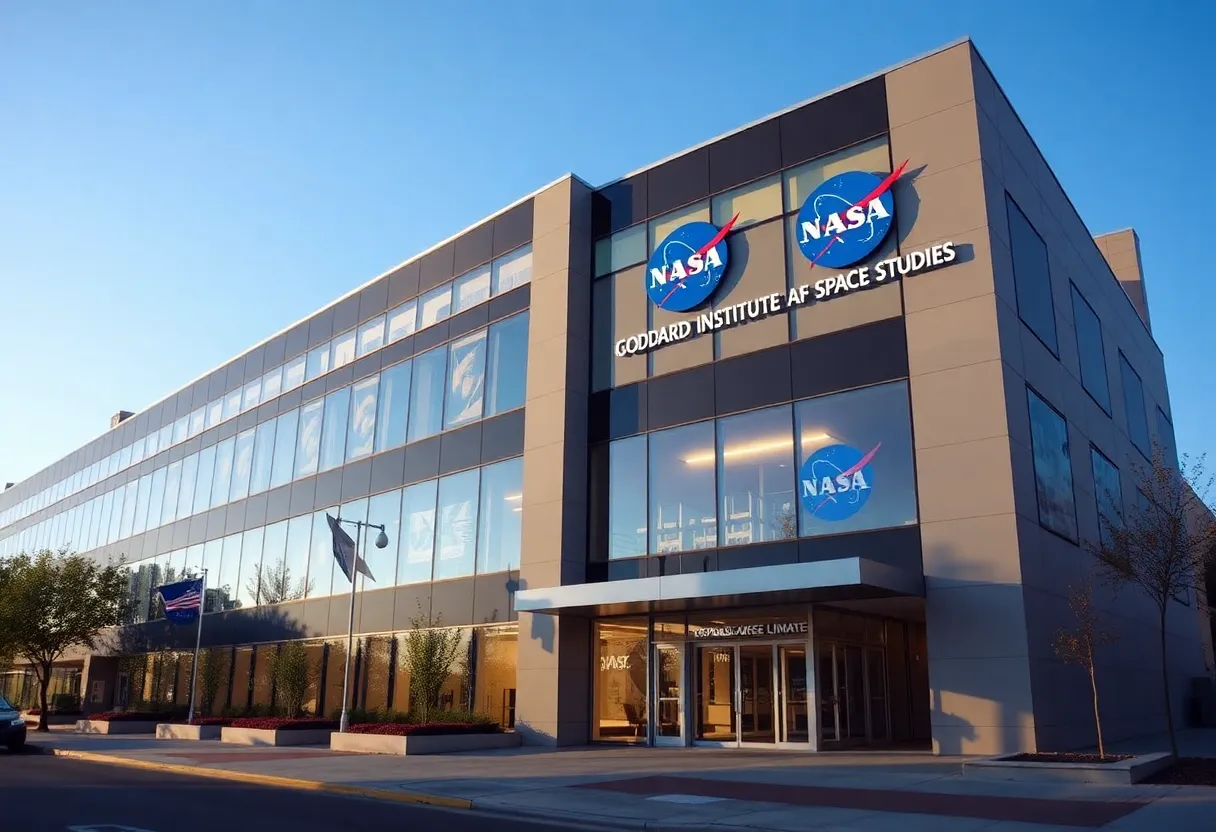News Summary
NASA’s recent decision to cancel its lease for the Goddard Institute for Space Studies (GISS) in New York City marks a significant shift in the future of the institute, known for its contributions to climate science. With the official termination set for May 31, 2025, concerns are rising over potential budget cuts exceeding 50% in NASA’s Earth science budget. As employees transition to remote work, the future operations and collaboration at GISS remain uncertain yet hopeful amidst these challenges.
New York City Feels the Impact of NASA’s Lease Cancellation at GISS
In a twist that has left many wondering about the future, NASA has announced the cancellation of its lease for the prestigious Goddard Institute for Space Studies (GISS) office, situated within a Columbia University building. The official termination is set to take effect on May 31, 2025, marking a significant shift for the institution that has been a cornerstone of space science research in New York City.
A Brief History
Established back in 1961, GISS has been operational in the Big Apple for over six decades, providing invaluable contributions to theoretical research in space sciences. The institute found its home in Armstrong Hall during the late 1960s, where it has grown to become a leader in climate science research. Under the stewardship of notable climate scientist Gavin Schmidt since 2014, GISS has continually pushed the envelope, modeling the impacts of both natural and human-induced changes on our planet.
The Financial Factors
Currently, NASA leases more than 4,000 square meters (or 43,000 square feet) of office space in the building for an annual rent of approximately $3.03 million. Originally, this lease was set to run through August 2031 but has now been cut short amid ongoing reviews of government leases under the current administration. The exact reasons behind this decision remain undisclosed, leaving many to speculate whether the move was initiated by NASA itself or directed by an external agency.
What Does This Mean for GISS?
Setbacks like these often lead to worries, and this case is no different. Inside NASA, there are rising concerns that GISS may face severe budget cuts. A draft budget proposal has suggested slashing NASA’s Earth science budget by over 50% for fiscal year 2026, leaving it at around $1 billion. Such cuts could profoundly affect the institute’s operations and morale, especially for the team of over 130 employees currently on staff.
Transition to Remote Work
As the lease winds down, employees will temporarily shift to remote work agreements, making the transition as smooth as possible until a new, permanent workspace is secured for the GISS team. While the mission of GISS remains active and the passionate team continues its important work, the transition to remote work brings its challenges. Many are eager to see how this might influence collaboration and community within the ranks.
Future Efforts and Support
Despite the initial upheaval, NASA has expressed its commitment to supporting employees throughout this transition period. Information is still emerging about the various ways the agency plans to assist staff in adapting to their new remote working arrangements.
Conclusion
As the deadline for the lease cancellation approaches, the future of the Goddard Institute for Space Studies remains uncertain but hopeful. With a rich history and an essential mission, GISS is poised to adapt to the changes ahead. All eyes will be on the agency as discussions continue about the effects of this decision on the institute’s operations, budget, and, most importantly, its dedicated team.
Deeper Dive: News & Info About This Topic
- SpaceNews: NASA Cancels Lease for Earth Science Office
- Wikipedia: NASA
- CNN: NASA Lease Canceled
- Google Search: NASA Goddard Institute for Space Studies
- NASA Watch: NASA is Terminating the GISS Lease
- Encyclopedia Britannica: NASA
- Science Alert: NASA’s Long-Term Climate Predictions
- Google Scholar: NASA GISS
- New York Times: 2016 Hottest Year on Record
- Google News: NASA Earth Science








